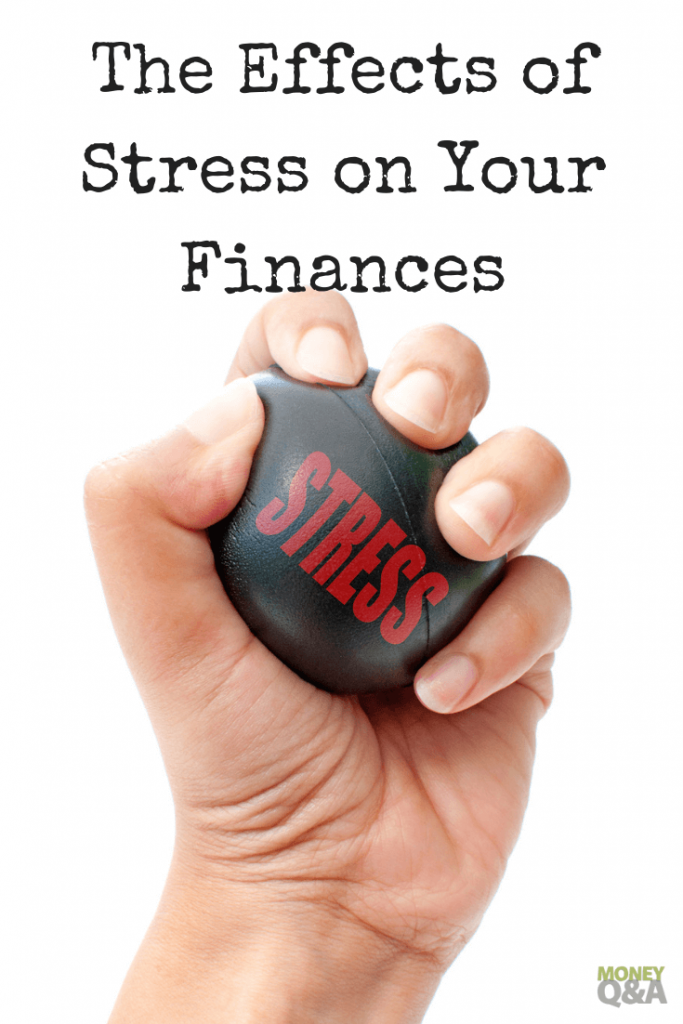
Are you currently or have you ever worried about the state of your financial situation? Whether you’re struggling to pay off debts, living paycheck to paycheck, living with minimal savings, or falling behind on retirement contributions, there’s a good chance you’ve experienced anxiety about your finances at some point in your life.
After all, a January 2020 CreditWise survey by Capital One found 73% of Americans rank finances as their #1 cause of stress, significantly more than the rates of stress caused by politics, work, and family.
Notably, the survey also found that more than 80% of Millennials and Gen Zers are reportedly stressed out by their personal finances. Still, financial stress isn’t exclusively a younger generation problem, of course. Other research has found the average Baby Boomer has just $175,000 saved for retirement, which is nowhere near the amount they’ll need to cover their expenses (including costly hospital bills and possible long-term hospice care) in their golden years.
So why does everyone seem stressed about their finances? Generally speaking, it’s a combination of poor financial planning and ongoing management, expensive and unexpected life circumstances (e.g., major hospital bills), high costs of living increases relative to stagnant wage growth, and oftentimes, ignorance about better ways to save and invest for financial prosperity.
The Effects of Stress on Your Finances
If you’re stressed about money, or you feel unsecure in your current situation, here’s how to recognize and overcome the consequences of finance-related stress in your own life.
What Causes Financial Stress?
There’s no singular cause of financial stress; circumstances differ for everyone. Sometimes it’s a personal spending problem that could be relatively easily mitigated by developing the discipline required to stick to a budget, using cash instead of credit cards, setting up automatic savings deposits, and cutting out any unnecessary expenses until you’re on stable financial footing again.
Sometimes financial stress is caused by factors outside of your control, like unexpected medical emergencies, rising housing costs, car troubles, transportation and/or accommodations for out-of-state funerals or weddings, spouse’s well-hidden gambling or impulsive spending problems, etc.
You don’t even have to have a massive pile of debt to worry about money; some people are stressed because they feel like they have inadequate savings or are off-track to meet their financial goals. Stress isn’t necessarily a rational response to finances in all cases, so it’s totally possible to feel stressed by finances even when you’re in a pretty good spot compared to other people.
The causes, severity, and effects of stress vary from person to person, so be sure to remember that stress is fundamentally an internal, psychological phenomenon (with real effects on your physical and mental well-being) that is caused by circumstances that make you feel overwhelmed and unable to cope with your external situation.
What Happens When You’re Stressed About Money?
When people are stressed and don’t know how to cope with whatever is causing the stress, they act irrationally. Some of the consequences of financial stress may include:
- Impulsive spending
- Feeling anxious and/or depressed in your everyday life
- Lower cognitive functioning capacity
- Migraines and/or sleeping problems
- Low self-esteem
- Increased dependency on substances (e.g., alcohol or painkillers)
- Interpersonal conflict
These are just some of the many potential effects of stress; some people are better equipped to manage money-related stress, but this isn’t to say you can’t learn better-coping strategies.
Control Emotional, Impulsive Spending
Many of the aforementioned financial stress effects can be resolved somewhat by reining in your spending and amplifying your saving habits. This means you need to get to the heart of the problem before successfully combat stress and restore financial stability in your life.
For example, many people stressed out by debt inadvertently make the problem worse by relieving stress through shopping sprees. The short-term dopamine high we get after making a purchase doesn’t seem worth it once reality sets back in, prompting some people to buy even more stuff to feel better about themselves and their situations.
If a debt is the central cause of your stress, then stop spending right away. This is way easier said than done, but if stress relief is important to you, then making significant, long-term progress on debt should be more than enough to motivate you to develop smarter spending habits.
Whether you do this with the help of a more efficient budget, the cash envelope method of budgeting, automated savings, or any other method, you’ll be in a much better place financially and psychologically if you take that first step in acknowledging your impulsive spending problem and creating an actionable game plan for keeping your emotions-fuelled spending in check.
How to Overcome Financial Stress
Are you ready to conquer money-related stress? If you’re genuinely willing to take the steps necessary to get out of debt and/or grow your savings and investments, then your next move should be solidifying your budget when you’re in a calm, low-stress state. Stress propels us to make bad decisions based on our own misperceptions of urgency or importance (e.g., “if I don’t get out of debt in three months, I’m doomed” or “it’s too late to start saving for retirement – I guess I won’t start at all”).
Another useful strategy for mitigating financial stress involves goal-setting, not just with a basic budget but also setting up goal-directed savings accounts and automating some of your savings/investments so your own worst impulses can’t get in the way of your path to financial freedom. Increase paycheck deductions for your 401K or another work-provided retirement plan. Focus on solutions more than you dwell on problems. Talk to a financial counselor. Develop new, cost-free ways of feeling good about yourself through volunteering.
If you’re looking for places to keep traditional investment accounts, you might want to check out investing with Betterment or Stash Invest.
The newest robo-advisor on the market called M1 Finance gives the more established, sophisticated investors great investing options. M1 Finance simplifies the investment process for beginning and experienced investors alike. Unlike other robo-advisors, M1 Finance does not charge a fee, and it gives you the option of taking more control over your investments if you want them (and less if you don’t).
These are just some of the many ways you can change your mindset and conquer financial stress, even if you feel like you’re drowning in debt, behind on your savings goals, or behind your peers in terms of financial success.

